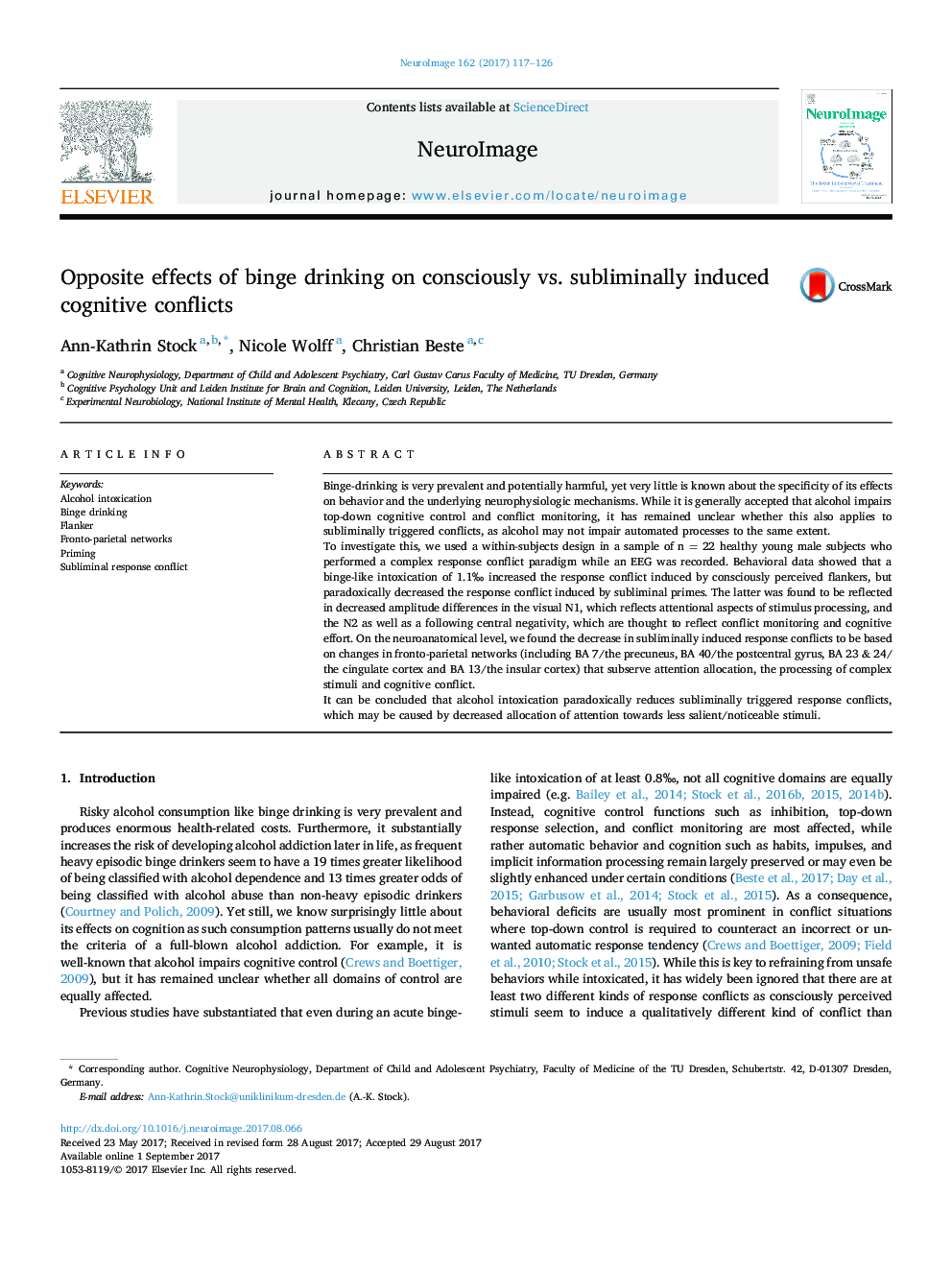| کد مقاله | کد نشریه | سال انتشار | مقاله انگلیسی | نسخه تمام متن |
|---|---|---|---|---|
| 5630757 | 1580848 | 2017 | 10 صفحه PDF | دانلود رایگان |

- Ethanol differentially modulates conscious and subliminal cognitive conflicts.
- Consciously induced cognitive conflicts are increased by an alcohol intoxication.
- Subliminally induced cognitive conflicts are reduced by an alcohol intoxication.
- Changes in fronto-parietal networks underlie the reduction in subliminal conflicts.
Binge-drinking is very prevalent and potentially harmful, yet very little is known about the specificity of its effects on behavior and the underlying neurophysiologic mechanisms. While it is generally accepted that alcohol impairs top-down cognitive control and conflict monitoring, it has remained unclear whether this also applies to subliminally triggered conflicts, as alcohol may not impair automated processes to the same extent.To investigate this, we used a within-subjects design in a sample of n = 22 healthy young male subjects who performed a complex response conflict paradigm while an EEG was recorded. Behavioral data showed that a binge-like intoxication of 1.1Ⱐincreased the response conflict induced by consciously perceived flankers, but paradoxically decreased the response conflict induced by subliminal primes. The latter was found to be reflected in decreased amplitude differences in the visual N1, which reflects attentional aspects of stimulus processing, and the N2 as well as a following central negativity, which are thought to reflect conflict monitoring and cognitive effort. On the neuroanatomical level, we found the decrease in subliminally induced response conflicts to be based on changes in fronto-parietal networks (including BA 7/the precuneus, BA 40/the postcentral gyrus, BA 23 & 24/the cingulate cortex and BA 13/the insular cortex) that subserve attention allocation, the processing of complex stimuli and cognitive conflict.It can be concluded that alcohol intoxication paradoxically reduces subliminally triggered response conflicts, which may be caused by decreased allocation of attention towards less salient/noticeable stimuli.
Journal: NeuroImage - Volume 162, 15 November 2017, Pages 117-126